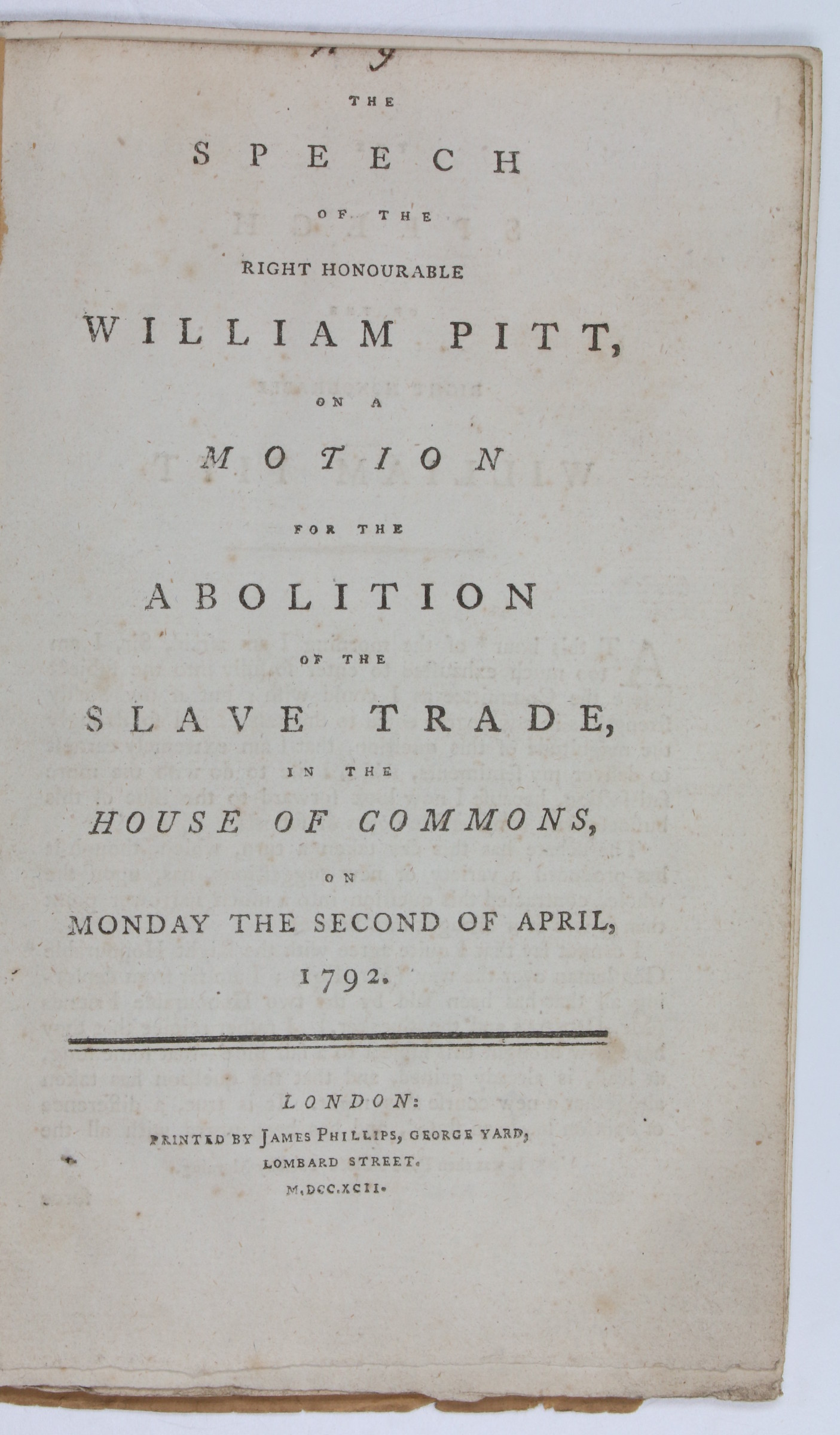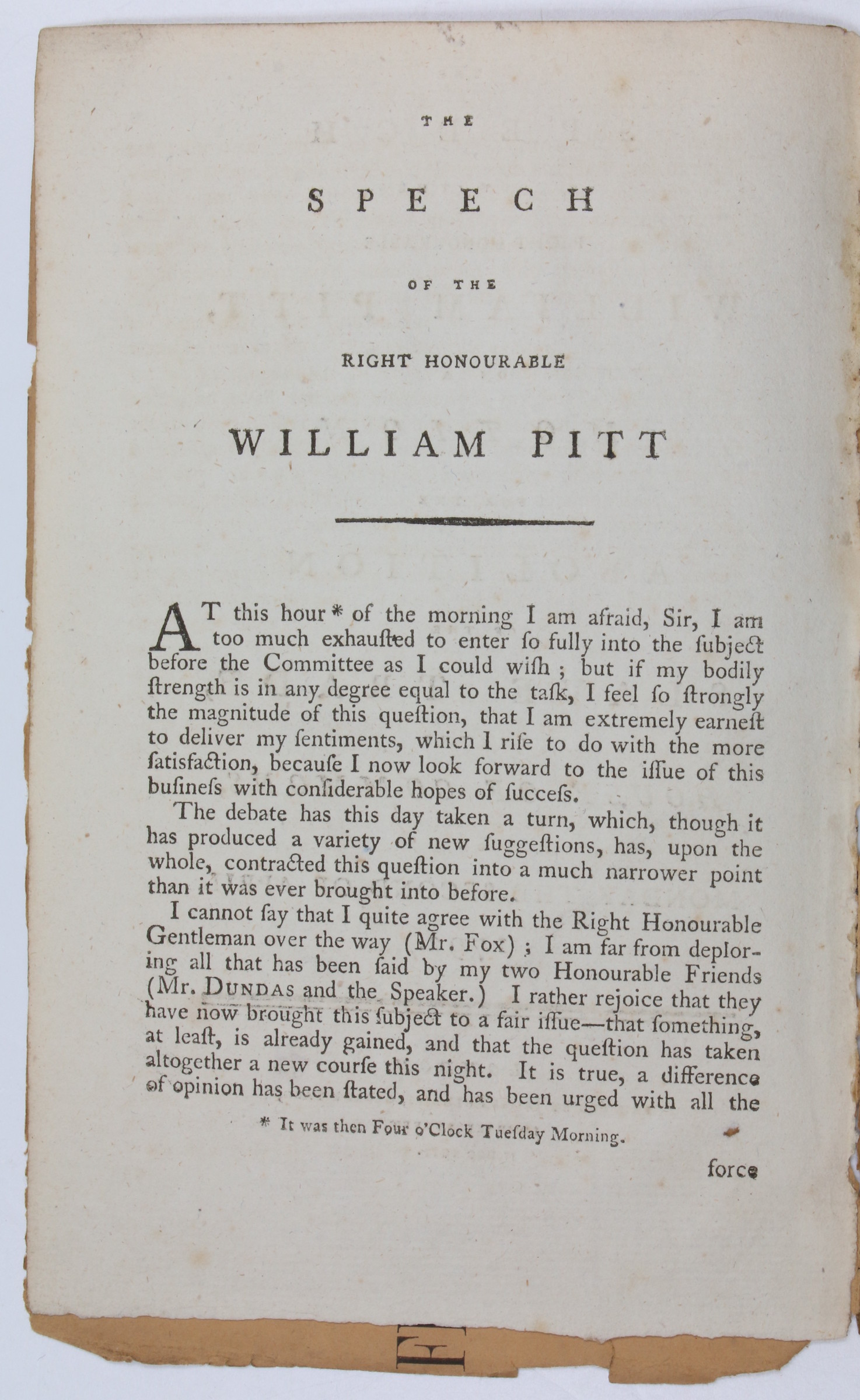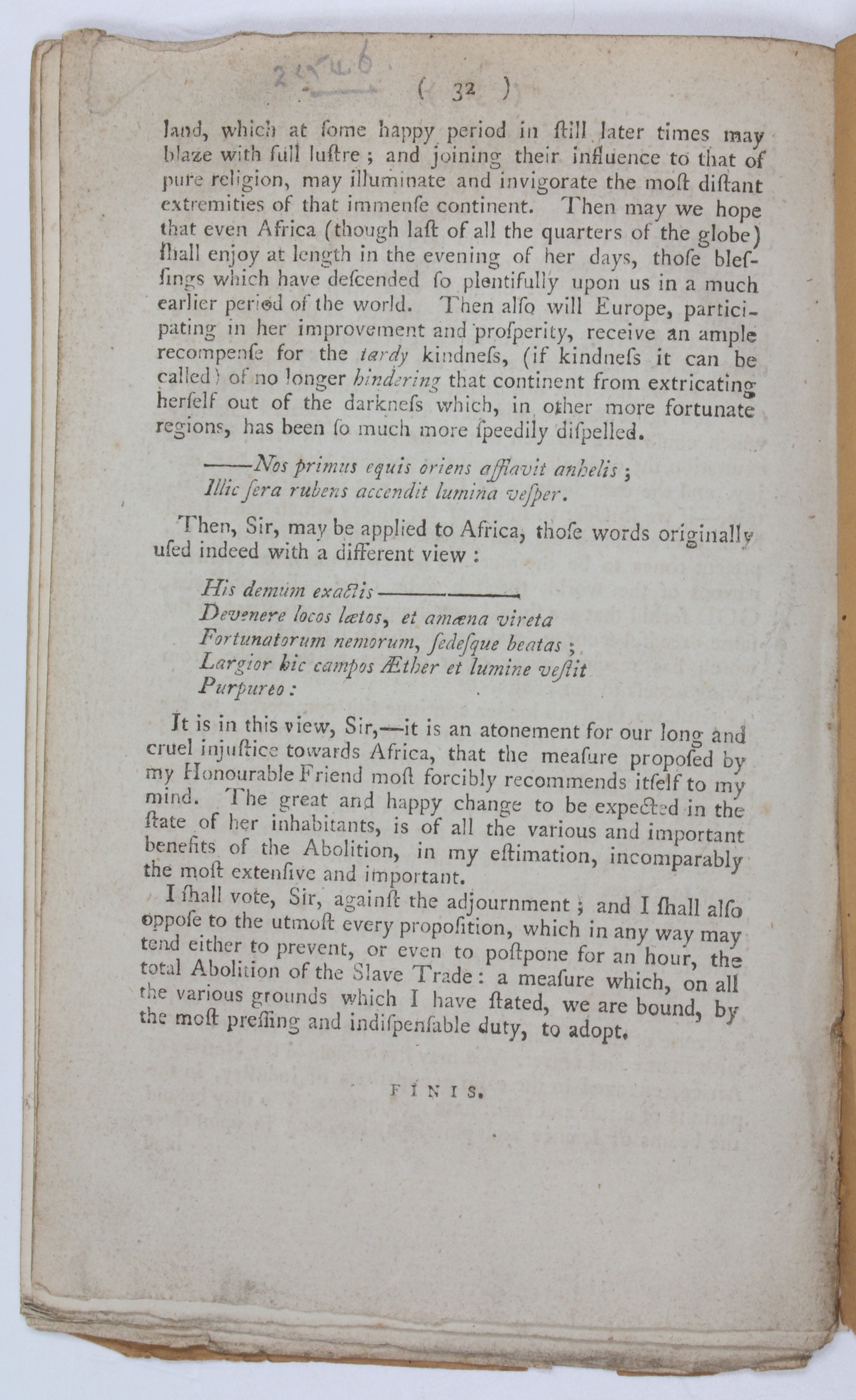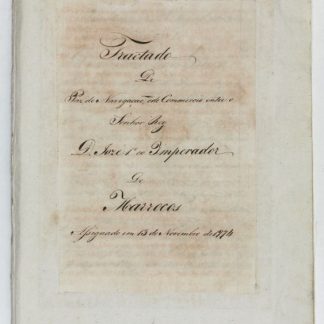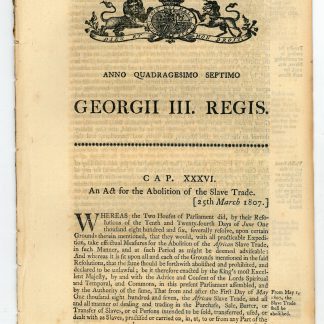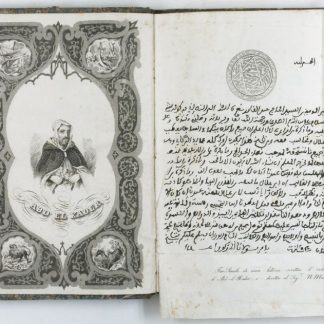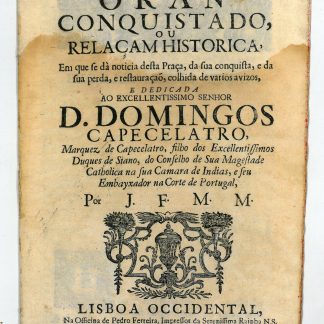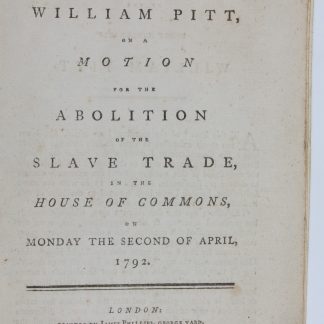The "incurable injustice"
Speech of the Right Honourable William Pitt, on a Motion for the Abolition of the Slave Trade, in the House of Commons, on Monday the Second of April, 1792.
8vo. 32 pp. Contemporary plain wrappers.
€ 1,750.00
A key record of the legacy of William Pitt the Younger (1759-1806), the youngest Prime Minister of Great Britain, whose long tenure can be defined by the successes and failures of British policy on the path towards abolition and emancipation. Pitt was himself friends with the most notable abolitionist in his parliament, William Wilberforce (1759-1833), but Wilberforce himself was commonly a critic of Pitt's policies. Indeed, abolition would be enshrined in British law, but not until in 1807, a year after Pitt's death. Nevertheless, Pitt made many contributions to the work of abolition.
The focus of Pitt's speech was a 1792 slave trade Act which passed in the Commons but not the House of Lords. In his speech, Pitt hopes to make a case for immediate rather than gradual abolition, and criticizes the bill's low penalties for partaking in the trade of enslaved individuals. He places particular focus on the effect of the trade on the nations of Africa, whose economies and livelihoods, he argues, are under constant attack by the practice of slavery. His strongest rhetoric pushed for immediate abolition: "Why ought the Slave Trade to be abolished? Because it is incurable injustice. How much stronger then is the argument for immediate, than gradual abolition!" (p. 19).
Light wear to wrappers, partly detached from binding with no loss or resulting wear. Bright and clean.

